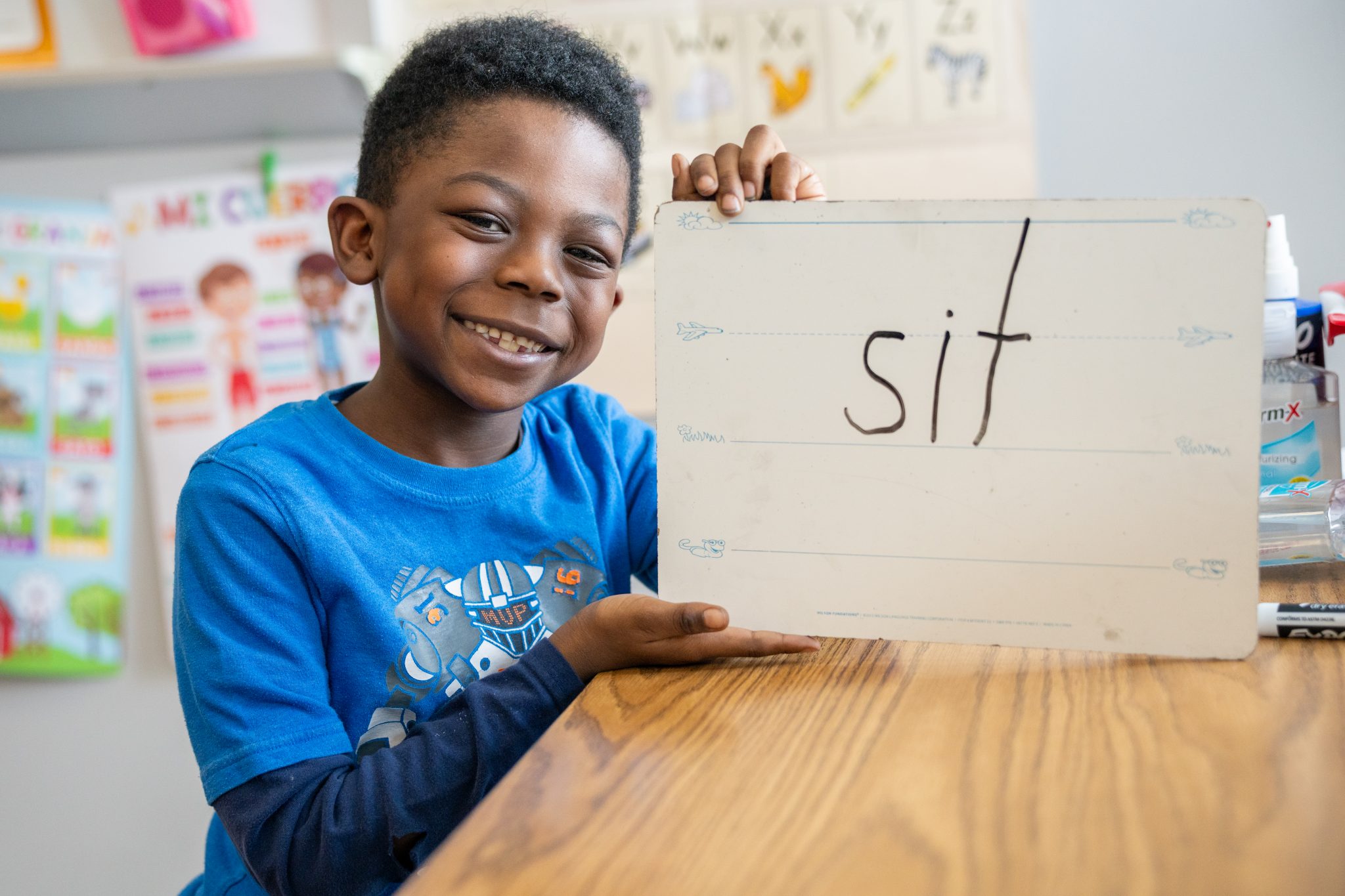
06/03/25
Barbara C. Jordan Elementary: A Bold Commitment to Literacy in the Emerson Early Literacy Challenge
Barbara C. Jordan Elementary in the School District of University City is determined to ensure every child becomes a confident, capable reader. As part of the Emerson Early Literacy Challenge, the school is refining its approach to foundational literacy skills, small-group instruction, and equity-driven strategies to close the literacy gap. With support from The Opportunity Trust and Emerson’s $1 million investment, educators at Barbara C. Jordan are strengthening their instructional practices and collaborating with national experts to implement research-backed strategies. Their mission is clear: every child, regardless of background, deserves the opportunity to read and succeed.
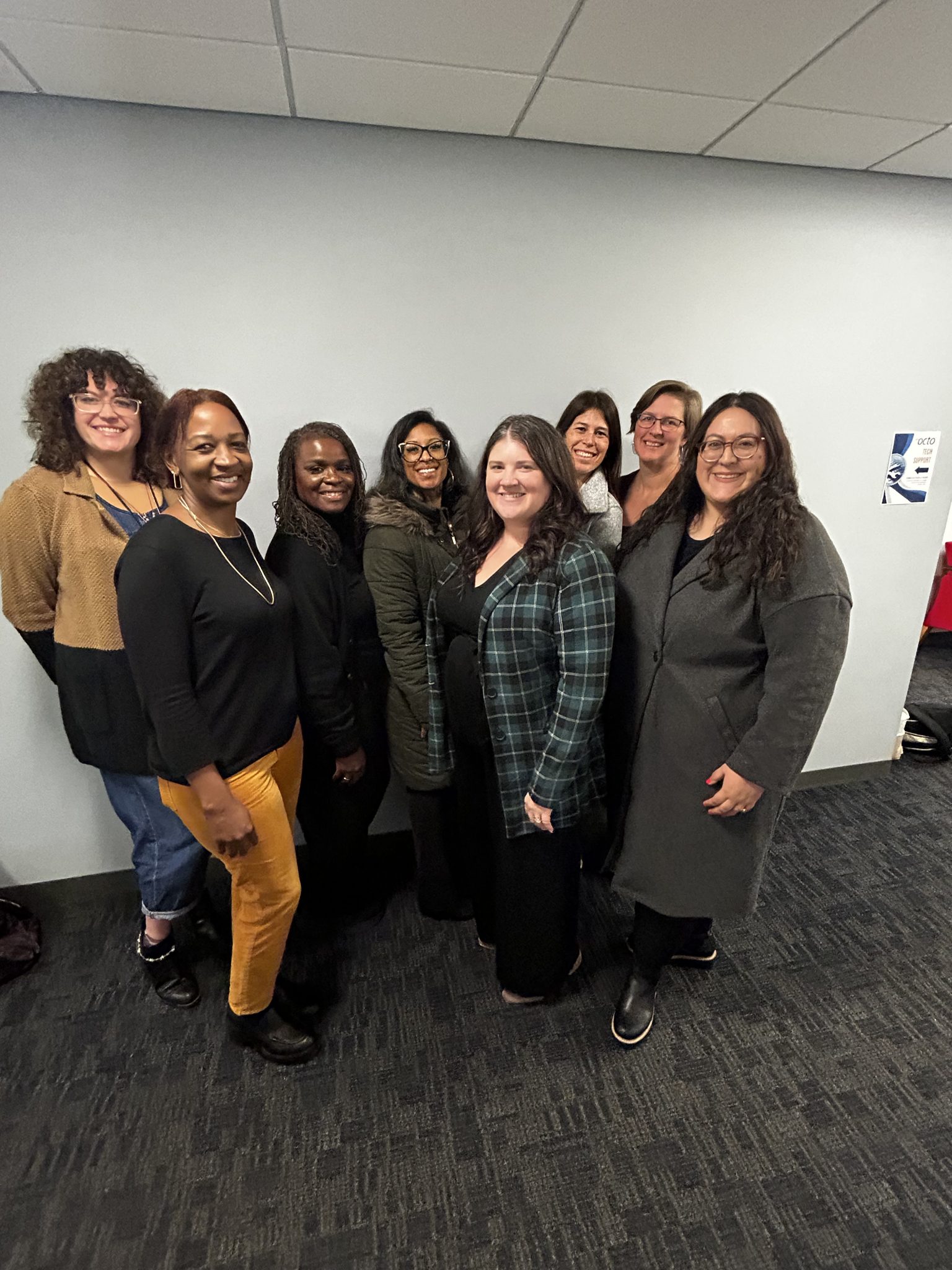
Who Is On The Team?
Behind every successful initiative is a dedicated team, and Barbara C. Jordan’s literacy transformation is no exception. The school has brought together educators, administrators, and community members who share a deep commitment to the power of literacy:
- Dr. Sharonica Hardin-Bartley, Superintendent, School District of University City
- Dr. Elizabeth Gardner, Principal, Barbara C. Jordan Elementary
- Jennifer Hansen, Assistant Principal
- Jessica Luter, Literacy Coach
- Brittany Davis, First-Grade Teacher
- Marcus Wallace, Parent Representative
- David Williams, Community Member and University City Alumnus
This coalition of educators and community leaders exemplifies the belief that literacy is not just a school issue—it’s a shared responsibility. The engagement of parents and local leaders adds a level of accountability and unity, reinforcing the idea that student success is a reflection of collective effort.
How Barbara C. Jordan is Advancing Literacy?
At the heart of Barbara C. Jordan’s literacy work is the recognition that consistency and commitment drive real change. The school has long prioritized literacy, but the Emerson Early Literacy Challenge is accelerating its progress by refining instructional approaches, increasing teacher capacity, and strengthening community engagement.
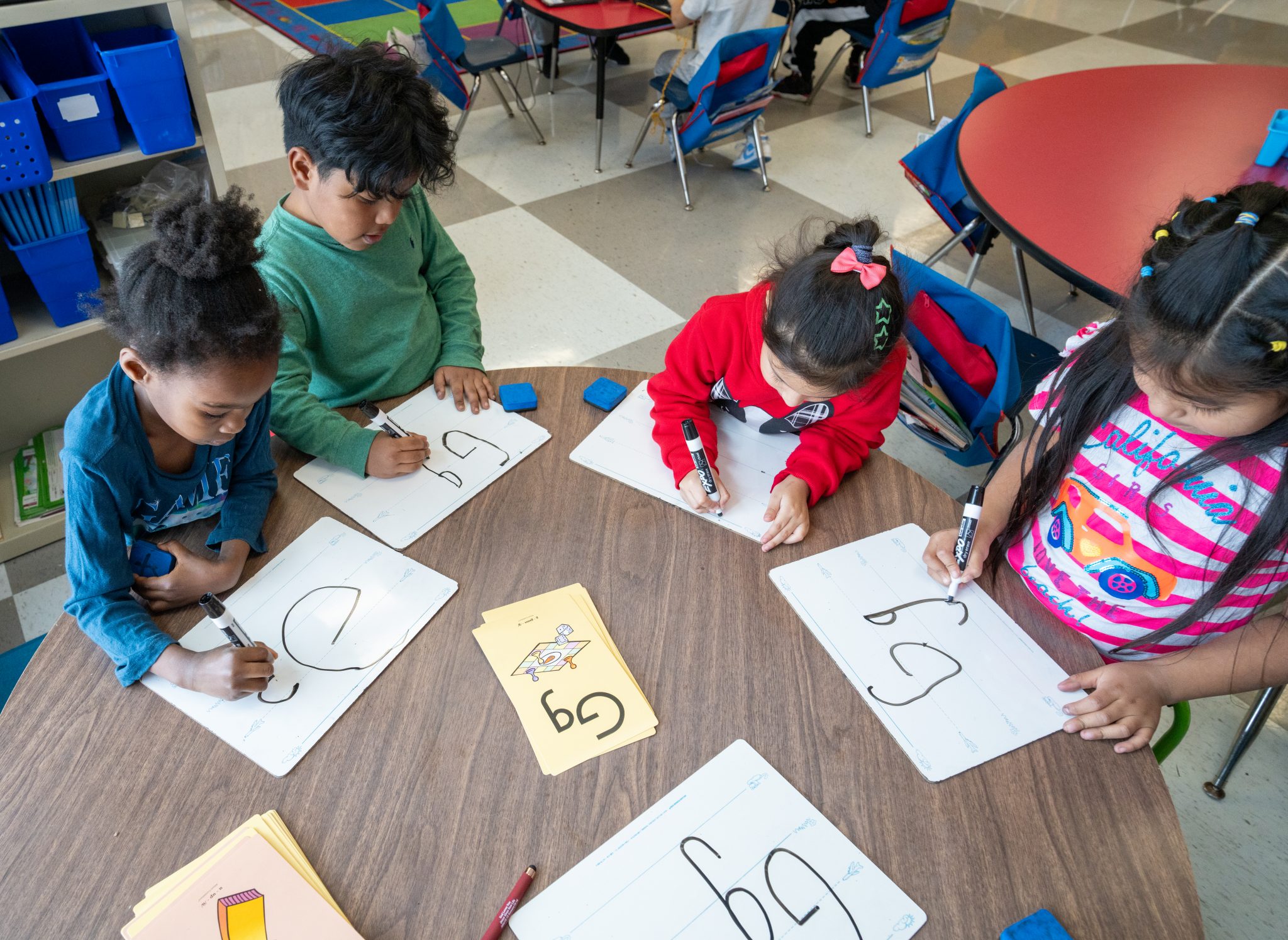
A critical shift the team is making due to reflections during the challenge has been dedicated small-group instruction, allowing teachers to provide targeted reading support based on students’ needs. The introduction of structured reading blocks ensures that every child, regardless of skill level, receives consistent, individualized attention to build confidence and mastery.
Barbara C. Jordan has already laid a strong foundation by implementing Amplify CKLA (Core Knowledge Language Arts) for K-5 literacy instruction, which aligns with the Science of Reading. This curriculum is reinforced by Heggerty Phonemic Awareness, an evidence-based program that builds essential early literacy skills. In addition, the school has integrated FastBridge assessments to track student progress and identify areas for intervention, ensuring that instruction is data-driven and responsive to student needs.
“We’ve done a lot of work to make sure that we have really high-quality materials in teachers’ hands, that we’ve done a lot of training around those materials, and we’ve really guided all of our decision-making under the leadership of Christina Sneed to make sure that when we’re choosing things, we’re doing it based on the research,” said Emily Wesche, Instructional Leader at Barbara C. Jordan.
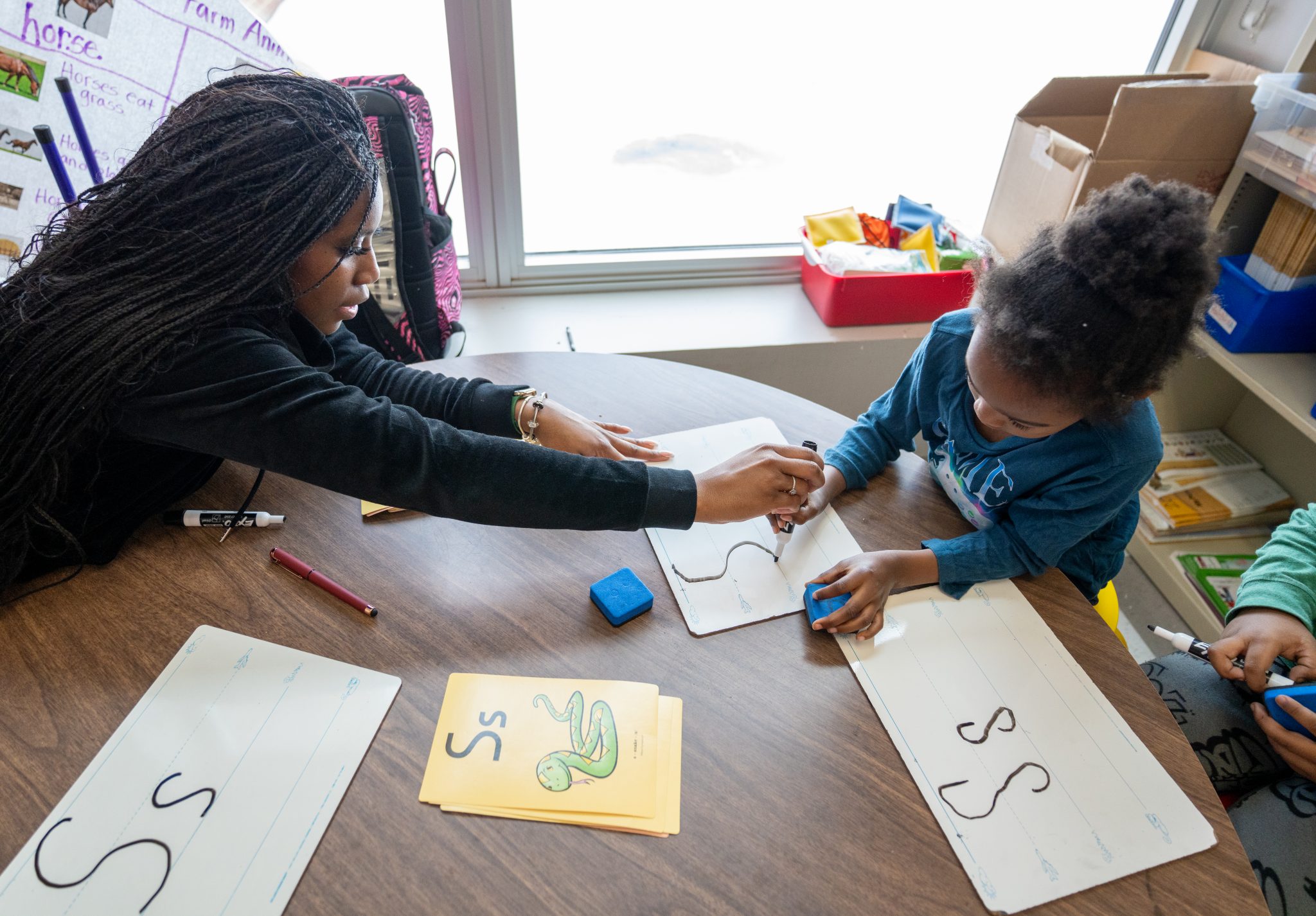
The school is also deepening its collaboration with families, recognizing that literacy doesn’t begin and end in the classroom. Parents are provided with take-home reading materials, invited to family literacy nights, and engaged in workshops that help them support reading at home.
“This presented a really good opportunity for us to look at all of these tough choices and decisions we’ve made… and seeing some progress with our students based on those decisions, but knowing that we’re not where we want to be yet,” Wesche added.
What Defines Success?
For Barbara C. Jordan Elementary, success means ensuring measurable growth in literacy skills across all K-3 students and embedding sustainable instructional practices that empower teachers and engage families beyond the two-year challenge.
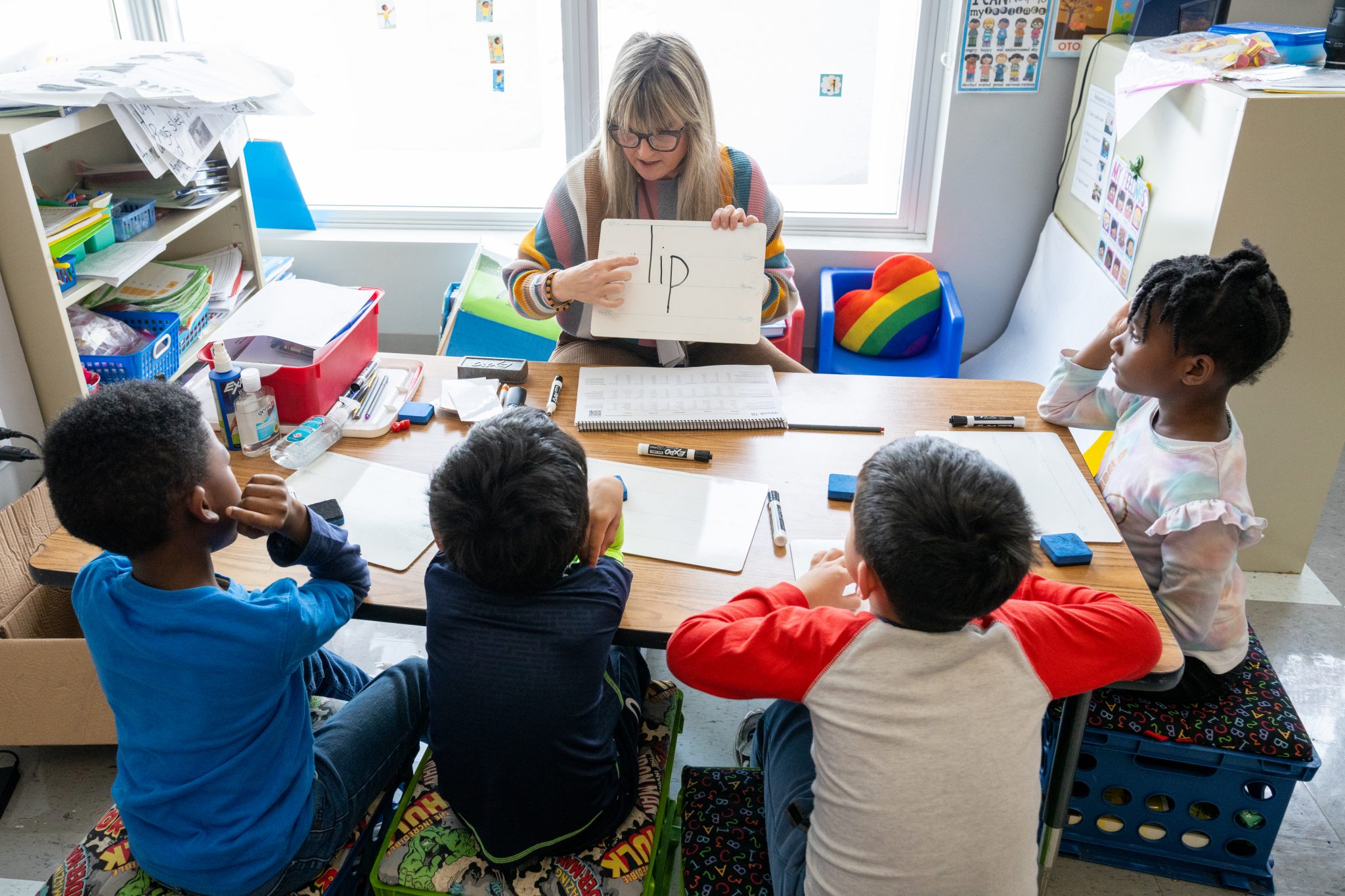
As part of the Emerson Early Literacy Challenge, the school has set clear, outcome-driven goals for student achievement, teacher development, and system-wide literacy improvements. By the end of the initiative, Barbara C. Jordan aims to:
- Increase the percentage of students reading at or above grade level by strengthening foundational literacy skills.
- Ensure all teachers are equipped with high-quality instructional strategies that align with the Science of Reading and best practices observed in Washington, D.C.
- Refine their small-group instruction model to make it a structured, non-negotiable part of the school day.
- Strengthen family engagement efforts so parents become active partners in their child’s literacy journey.
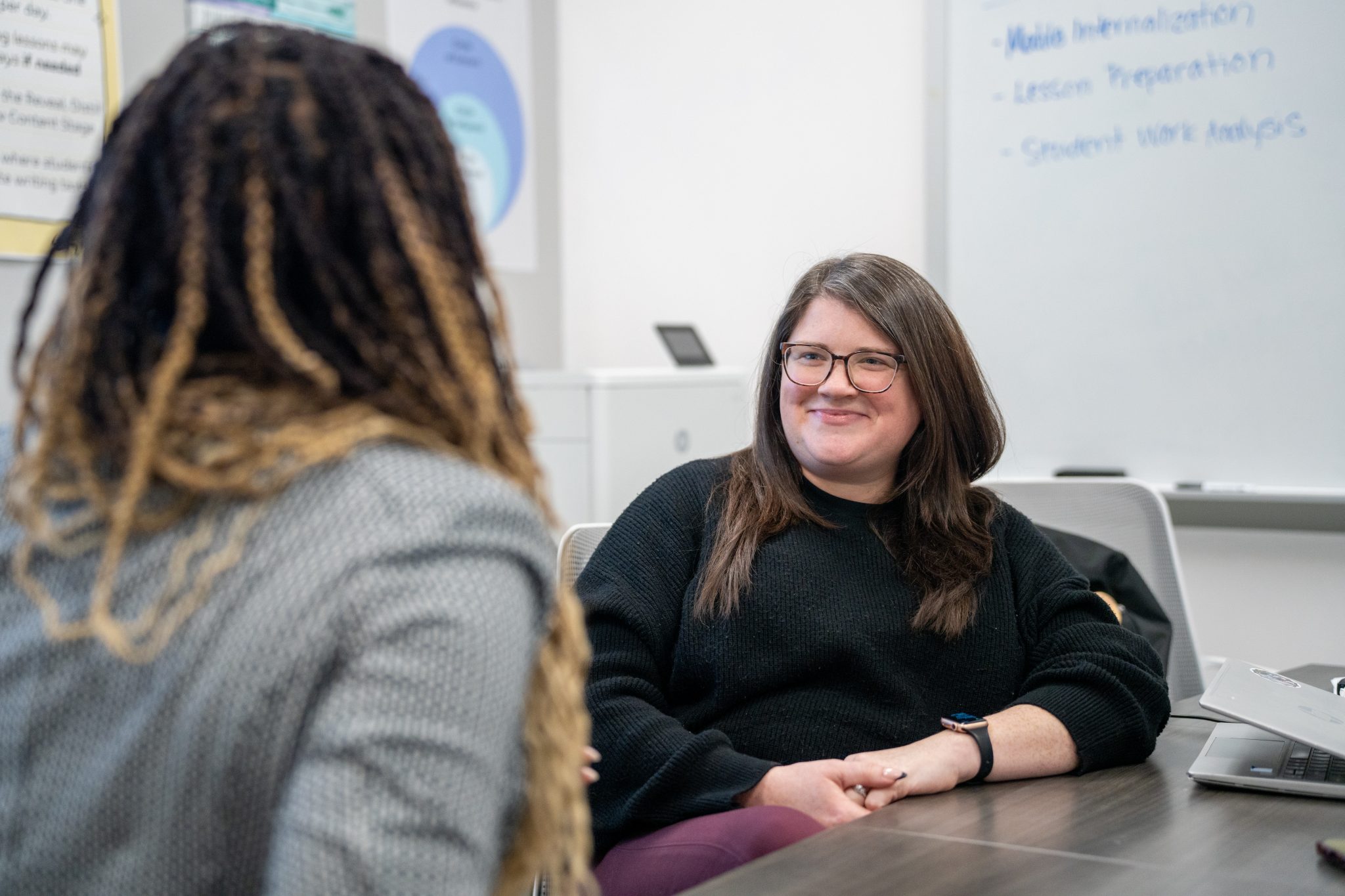
When I think about a child who leaves U City, I’m going past leaving Barbara C. Jordan. That they have every opportunity available to them for whatever it is that they want to do, and that they can access any steps that are necessary for them to get there
Emily Wesche, Instructional Leader at Barbara C. Jordan
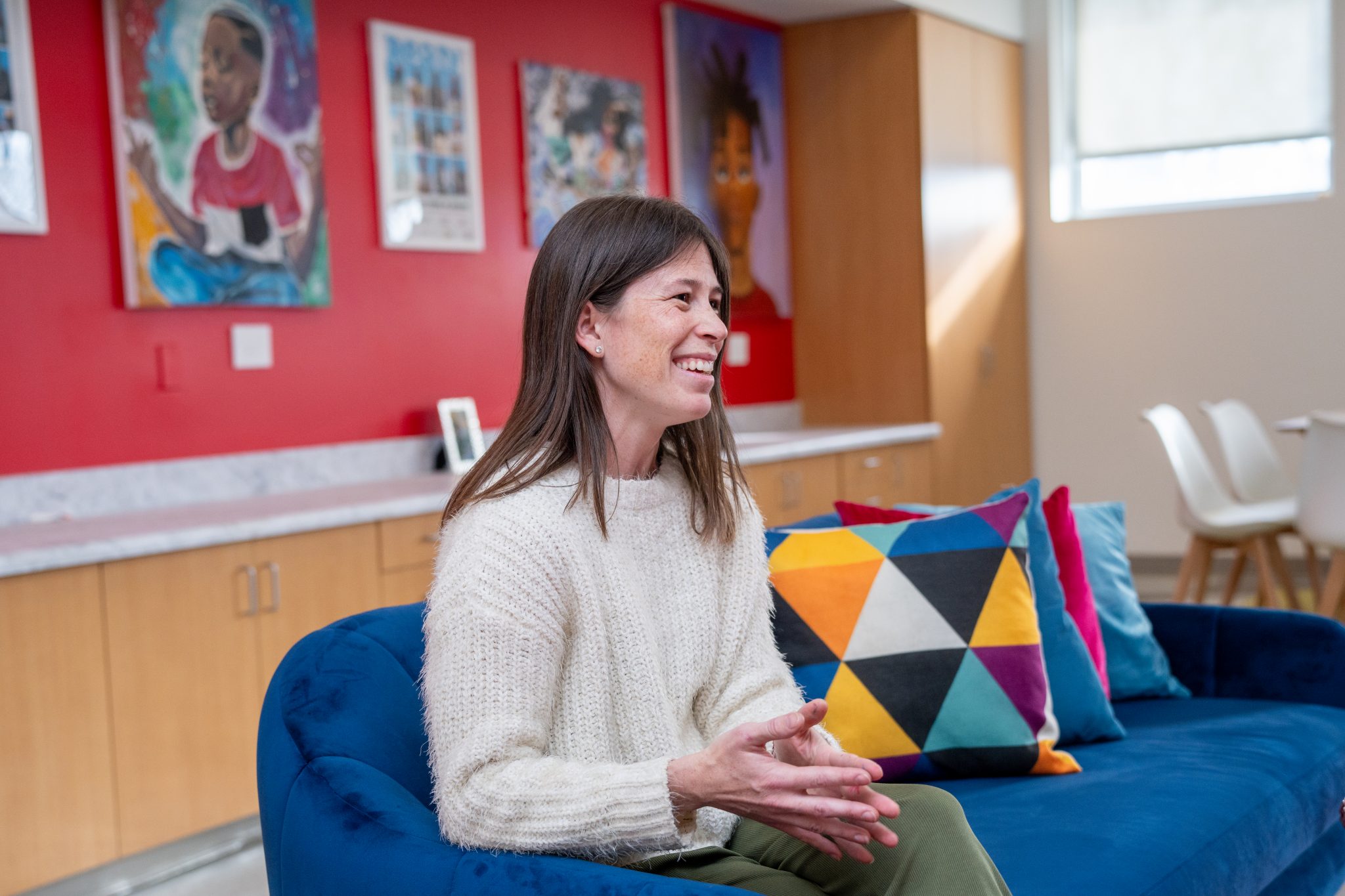
The school’s team believes success is not just about hitting a test score target—it’s about building a school-wide culture of literacy where every teacher, parent, and student understands that reading proficiency is essential for future success.
“Success to me is making sure they love reading, they feel confident, and that they believe that they can do hard things,” said Caitlin Horn, First Grade Teacher.
With teacher collaboration, targeted coaching, and dedicated resources, Barbara C. Jordan is positioning itself to serve as a proof point—demonstrating that real, lasting literacy improvement is possible when schools commit to research-backed strategies and deep, intentional change.
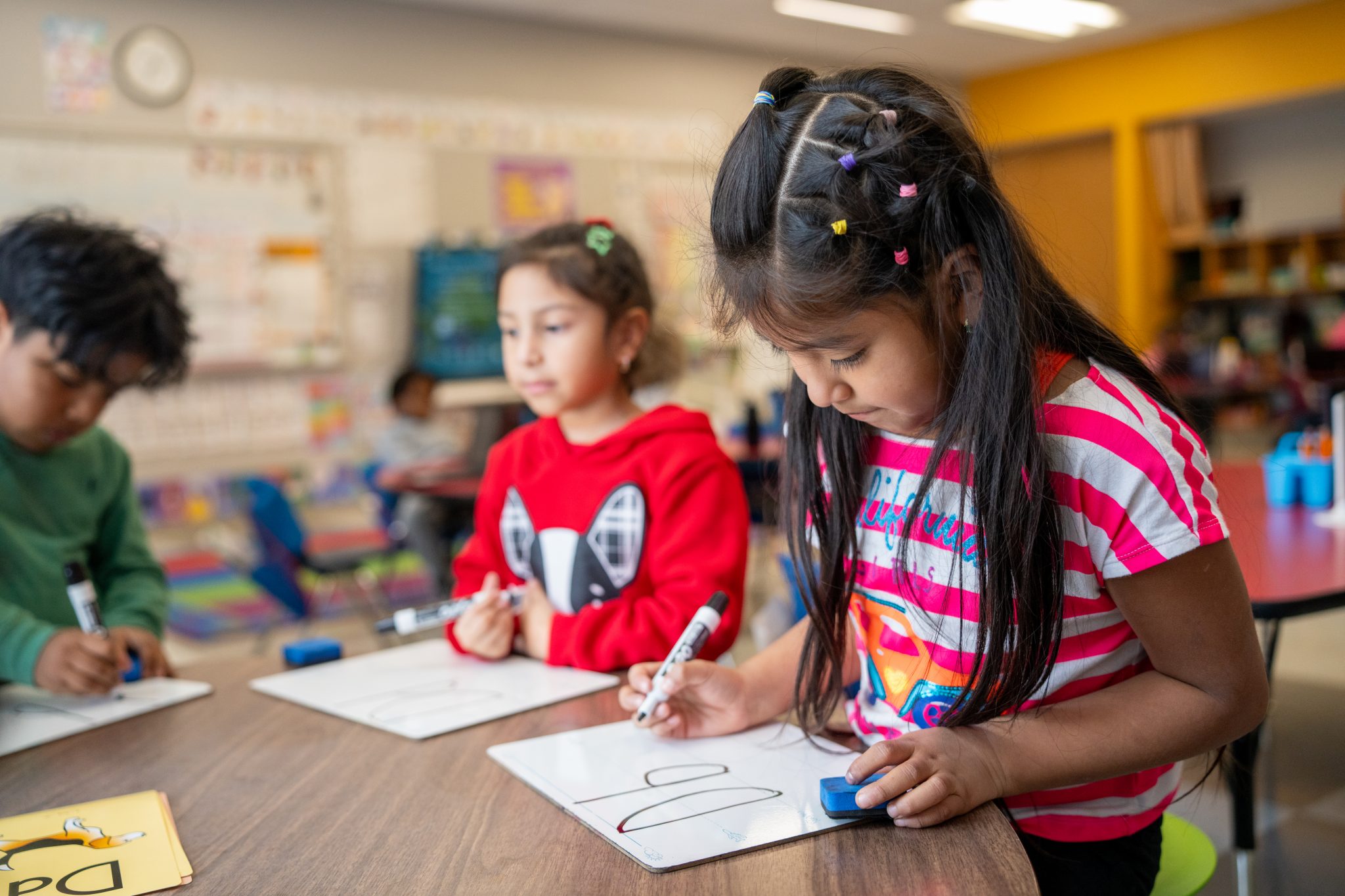
Looking Ahead
As Barbara C. Jordan continues its journey in the Emerson Early Literacy Challenge, the work is far from over. The next few months will be critical as the school team finalizes its literacy implementation plan, seeks board approval for funding, and prepares for full integration in the 2025-2026 school year.
But beyond the logistics, the real work is in ensuring that this progress is sustainable. Through continued professional development, rigorous assessment, and unwavering community support, Barbara C. Jordan is building a literacy model that will last far beyond this two-year challenge.
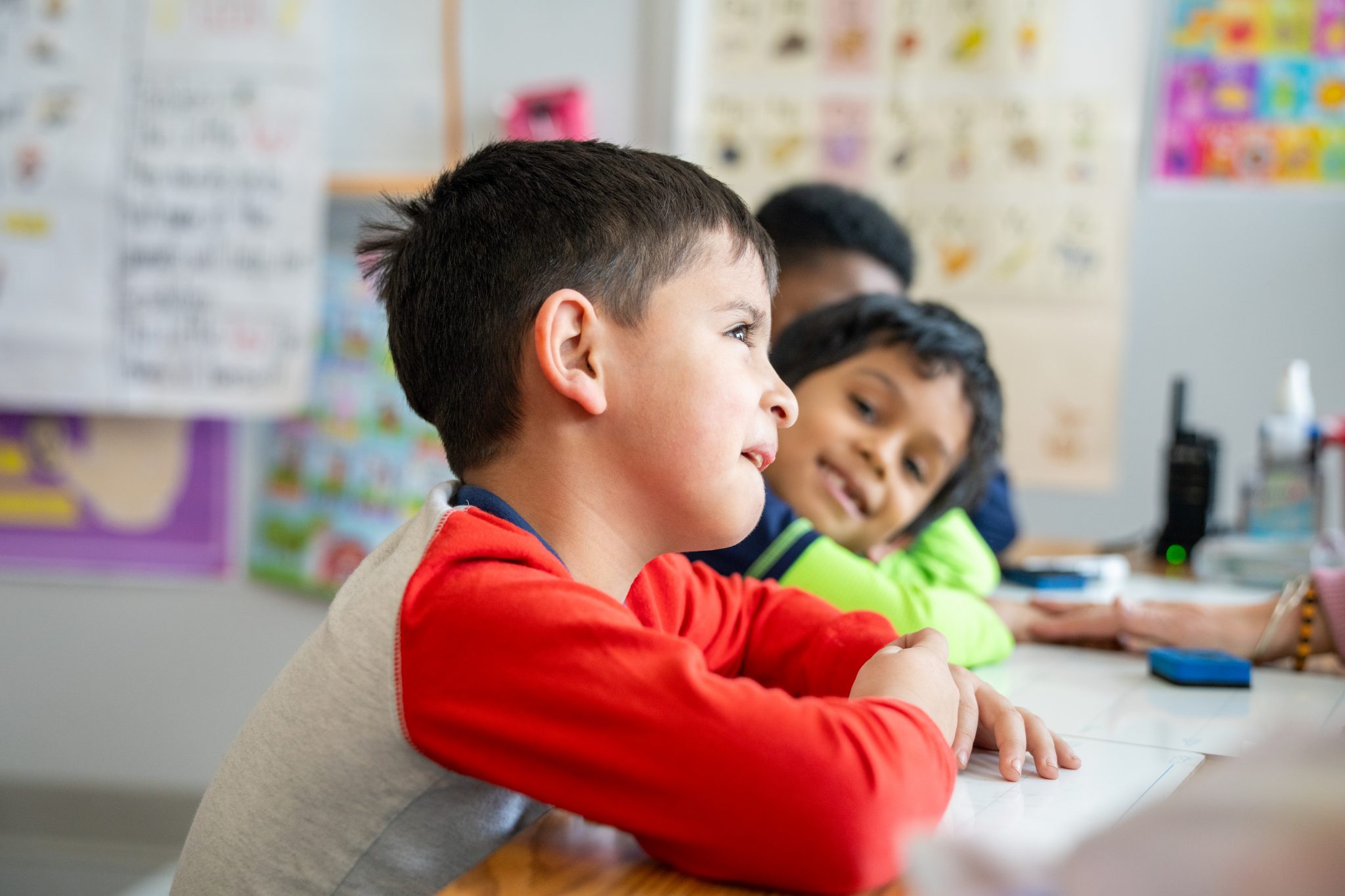
For those who want to support this initiative, there are multiple ways to get involved:
- Educators can collaborate with Barbara C. Jordan’s team to share strategies and insights.
- Community members can attend literacy events, volunteer in reading programs, or help spread awareness.
- Policymakers and donors can invest in scaling these research-backed literacy practices across other schools in the region.
The journey to literacy equity is a shared one, and Barbara C. Jordan is proving that with strong leadership, aligned vision, and collective action, lasting change is possible.
Follow The Opportunity Trust on LinkedIn to stay updated on progress and learn how you can support this transformative work.